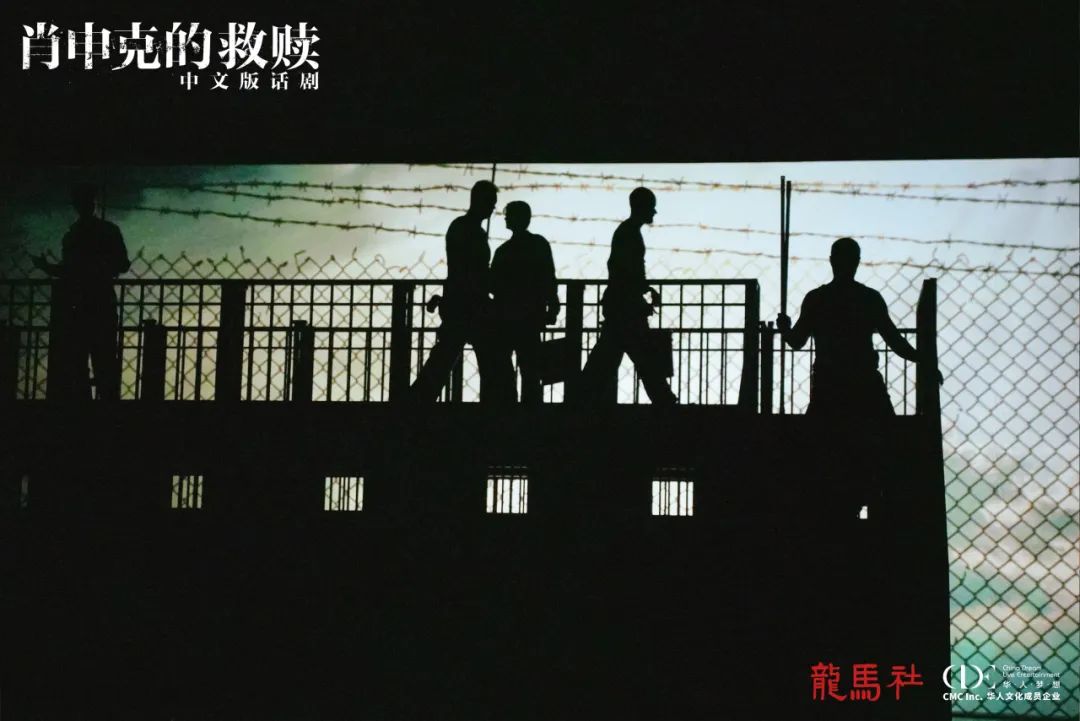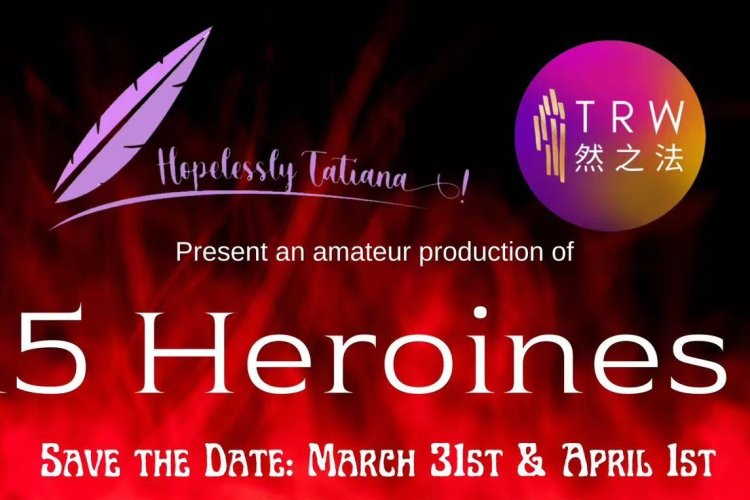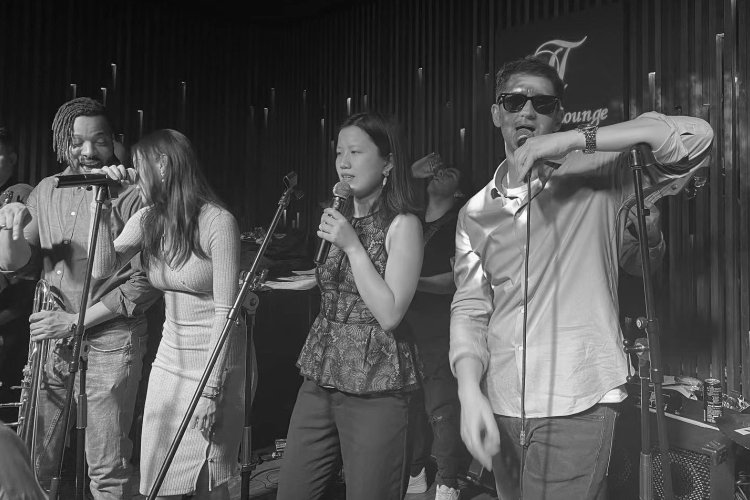Talking to Shawshank Star Andy Friend on the Chinese Adaptation
A Chinese adaption of The Shawshank Redemption, featuring a completely foreign cast who will be performing in Chinese, is coming to Beijing from Jan 25 to Jan 28 at the Beijing Tianqiao Art Center. Directed by Zhang Guoli, the play stars Australian actor James Clarke as the hero Andy Dufresne; Canadian Mark Rowswell, aka the famous comedian and actor Da Shan, as the narrator, Red; and Beijing-born US actor Andy Friend as the corrupt warden Greg Stammas. The play also features a handful of other talented actors.

Having an entirely foreign cast performing a play in Chinese is a very interesting concept and has already proved to be a huge hit with the audience. Ahead of the show’s Beijing debut, I talked to Friend over video call from his hotel room in Shanghai after the play's first showing in Shanghai.
Friend tells me that he had rather a late night the night before, but he still seems full of energy and there is a sense of elation about him as we make our introductions. I start off asking him for a brief introduction to himself and how he got into acting.
“I was born and raised in Beijing. My parents met in China. So I'm a local white kid. Some referred to us as the ‘Red Diaper Babies.’ Our parents came here in the ‘60s as revolutionaries. I studied art then I worked in Hollywood for 15 years after I finished college at the Central Academy of Fine Arts. I basically started working in movies, most of them behind the camera, basically doing visual effects and storyboarding and that kind of stuff.
Around 2004, 2005 I moved back to Beijing with my family and just continued working in Chinese cinema, directing projects and doing visual effects. Then, in the last ten years, I've started acting in Chinese movies. Two of the most popular roles were in Beijing director Jiang Wen’s movie Good over Evil and the recent movie Wandering Earth II, but this is my first stage experience. The famous stage actor Zhang Guoli contacted me and said he had this amazing project, this Shawshank adaptation, so that’s how I’ve ended up right here on stage doing this play.”

I’m curious for more details on how exactly Zhang cast him in the play, and Friend explains: “Having worked in in quite a few films and [being able to speak] fluent Chinese, there's not that many foreign actors who speak fluent Chinese [at] my age. So, you know, it's not surprising that they contacted me and also Da Shan, who actually flew back from Canada to do this play.
So we're this small group of actors who are stage people who speak fluent Chinese and are kind of known among Chinese film directors. He cast me from the very beginning because he said, ‘Even though your name is Andy, I think you're the perfect evil guy. You can play the warden, who is kind of crucial and critical to this story – any good drama or good story needs to have a really good villain, right?’”
Playing the character of the villain can often present its own challenges as it can be difficult getting into the skin of someone who’s written for audiences to hate. In light of this reality, I ask Friend how he felt playing the villain. “It's actually quite complicated,” he said. “I was a bit lost in the beginning because you can't just make it up and furrow your brow and look at somebody with a mean look and say something mean. You really have to, especially on stage, really believe it and get the right motivation. It took a little while to find the real core value of this villain because I think he's just a really selfish narcissistic person ... the guy socially is an upright citizen, but in fact, he's a real evil chief.”

This play is actually adapted from the Steven King novella Rita Hayworth and Shawshank Redemption, rather than the film, so there are some key differences in the story. Friend tells me that one of the main differences is “the character Red, the main narrator, is not an African American person in the book. It was just that the film director was so enthralled with Morgan Freeman's voice and the way he narrates that he cast him in the role. When you think about it, in the '40s and '50s, most American prisons were not integrated, so that in itself was a stretch.”
The Shawshank Redemption has become a cult classic in the US, however in recent years it has steadily become more and more popular in China. Friend has his own theory about why this is, saying that he thinks it became popular during the pandemic because “people were stuck at home so wanted to watch a jailbreak movie.”
To make the play more relatable for Chinese audiences, there have been some colloquial phrases added in. For example, Friend says his character has a moment where he uses the old Chinese proverb: 种瓜得瓜,种豆得豆 zhòngguādéguā , zhòngdòudédòu, which basically means, “you reap what you sow,” in reply to another character quoting the bible.
On what it feels like being an entirely foreign cast and performing in Chinese, Friend tells me: “First of all, we're so well received by the audience. You know how Chinese people are always so impressed when you can speak good Chinese. So having a whole cast of people speak it fluently – they love it. Chinese audiences actually clap during the play, like old theater. They get a lot of jokes. So they'll be laughing or at the end of scenes they'll be clapping and it's quite a ruckus.”

During rehearsals for the play there was a strict rule that the cast could only talk in Chinese. If any of them broke the rule, they’d have to pay an RMB 20 fine. Friend says that there was even a “[payment] QR code on the wall. The director basically from the very beginning said, I don't understand any English so my rule is that everybody has to only speak in Chinese. Some of the actors have poorer Chinese and they needed the practice so he said you need this environment to really focus on your tones and so that was the rule. I personally broke it quite a few times. Actually a few days ago on stage, I was in such an excited mood that I unleashed an English swear word, then I got fined for that.”
The cast is made up of eleven men, seeing as Friend jokingly says that “the only woman that's mentioned in the story is murdered, and so she doesn't even appear,” which he explains can be “a bit testosterone driven, it’s a bit like being in the army or on a boat or in the Navy where you're just with men all the time.”
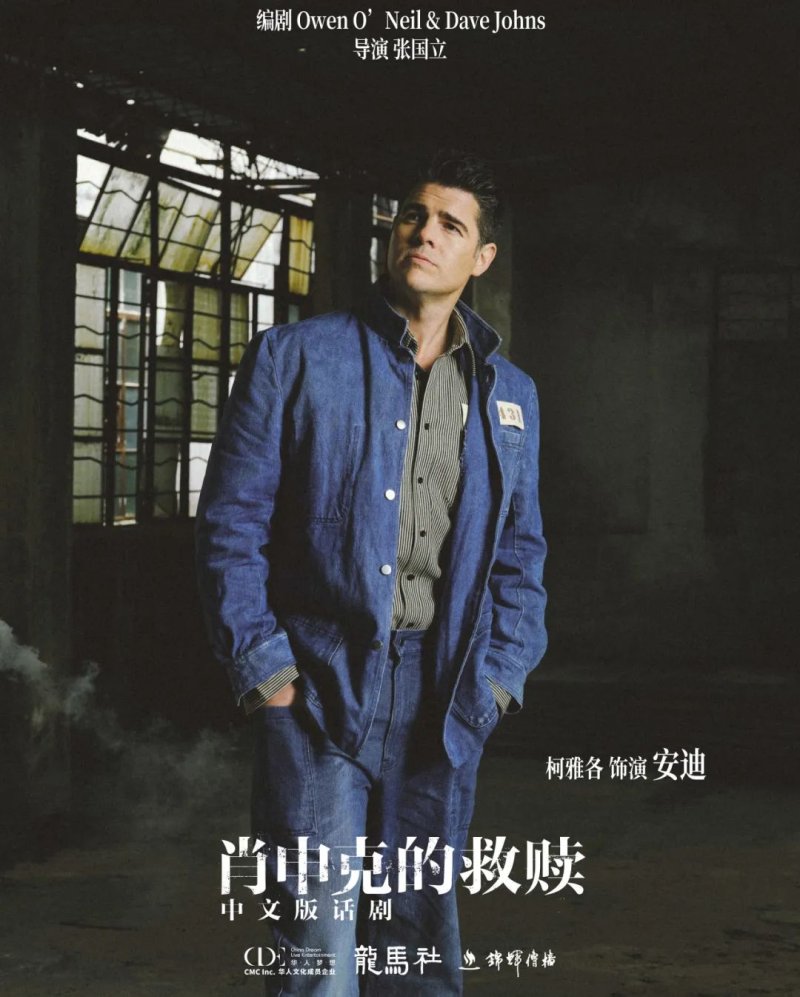
The play is Friend’s first time working with Da Shan, and even though they'd known each other for years, the two only met for the first time last October. On working with Da Shan, Friend says, “He’s a nice guy; we get along. Him being Canadian he’s very cordial, he’s very warm.” On the rest of the cast, he continues: “They're all really cool. Our oldest cast member is Mattie, from Finland. He used to work in China and I brought him on, just out of the blue. We decided he’d play Brooks the old bookworm. Two of the younger actors are actually half Chinese. They are the only [other] two who are who are born in China, and obviously speak Chinese, really well. We have [an] Argentine, we have the guy [Clarke] who plays Andy. [He] is an Australian and he came on actually quite late in the game. He only had a month to rehearse. We have a Russian guy, three Americans, the composer, Sean, is also acting in this show."
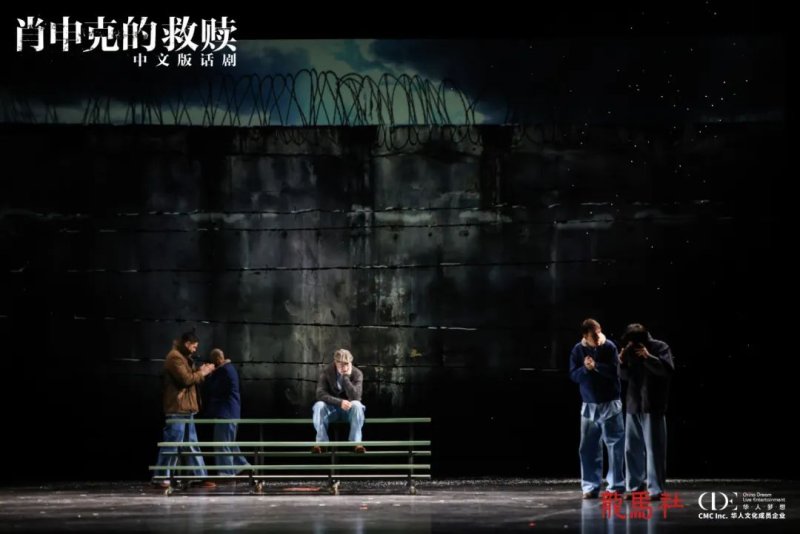
Despite the fact that this is the first time on stage for many of the actors, it seems that the play has been a big hit so far and Friend tells me: “We’ve been getting a lot of praise. Just last night I was talking to a Chinese old stage actor, and he was saying it's just so amazing to watch you foreigners on stage because you're all so relaxed. It's very different from Chinese plays where the acting is a lot more exaggerated and kind of rigorously managed, almost like a Shakespearean way of acting in a way. Whereas modern stage plays have become more and more natural.
I think the whole idea of having a bunch of Caucasians play a story that happens in an American prison but [speak] fluently in Chinese is really working and is really a nice formula because the Chinese audience is really able to completely absorb the story...”
However, Friend says that the audience reaction can vary quite a lot depending on the city, telling me:“There was less applause in Shanghai and we were actually kind of nervous … In Shenzhen the audience was younger, they were applauding more and laughing more. But in Shanghai … they’re more Westernized, so they don’t clap at the end of every scene. So the audience was really muted and quiet, even though they were really engaged – in fact, we noticed far less cell phones in Shanghai and they gave us a standing ovation at the end. It was just really different to suddenly have an audience that did not react to everything we were saying.”
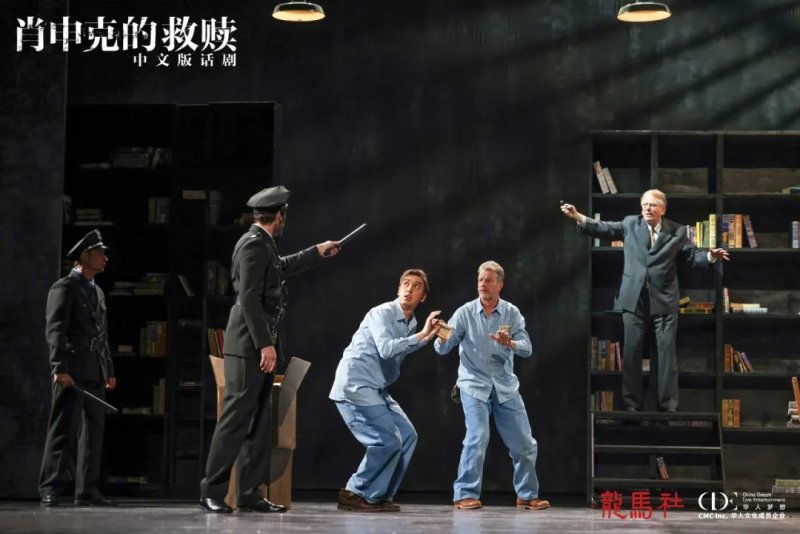
It will be interesting to see how the Beijing audience compares this weekend. Speaking of which, Friend says that there are more future shows planned for April/May and August/September this year if people aren’t able to catch the play this time around.
To end the interview, I wanted to know whether Friend has any other exciting projects in the pipeline. He told me: “There’s an animated film in the works and a punk rock movie in the works. A lot of my work is centered around music because I was part of the early rock and roll scene in Beijing in the ’80s, so music is almost like my religion. I did a project with Jackie Chan back in the summer and that hopefully should be released later this year. Basically being a freelancer, it's always a surprise what comes around the corner. And being an artist you just have to be open to the next collaboration and the next project that you can put all your artistic focus on.”

The Shawshank Redemption is showing Jan 25-27, at 7.30pm and Jan 27 and 28, at 2.30pm at the Beijing Tianqiao Art Center. Tickets can be bought through the 大麦 WeChat mini program by searching for “肖申克的救赎” and are RMB 188-1,288.
Beijing Tianqiao Art Center
Bldg 9, Tianqiao South Street, Xicheng District
西城区天桥南大街9号楼
READ: Six Beijing Record Shops That Are Worth a Visit for Browsing & Listening
Images: courtesy of Longma Entertainment

